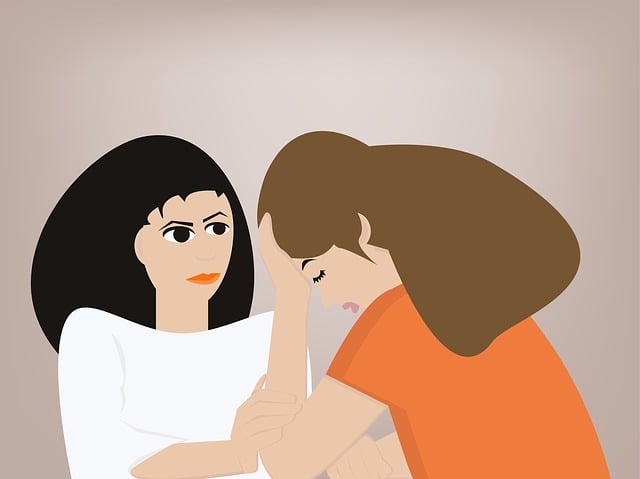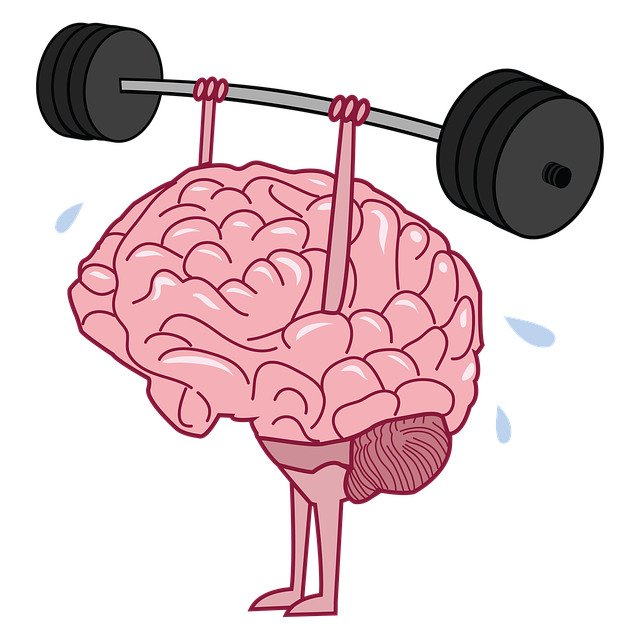Anxiety disorders globally can be managed effectively with Cognitive Behavioral Therapy (CBT), targeting negative thought patterns. CBT reduces symptoms in conditions like generalized anxiety, panic attacks, and social phobias. Integrating CBT into stigma reduction efforts promotes understanding. Mindfulness and meditation, practices focusing on the present without judgment, are effective therapies for psychosis and enhance well-being. A holistic approach combining lifestyle changes, mindfulness, support systems, and therapy for psychosis nurtures mind, body, and spirit, fostering resilience over time.
Anxiety is a common struggle, but there’s hope. This guide explores effective anxiety management techniques, from cognitive behavioral therapy (CBT) for its root causes to mindfulness practices and holistic lifestyle changes. Discover how unwinding your mind through CBT, cultivating presence with mindfulness, and strengthening support systems can lead to lasting relief. These strategies offer practical tools to navigate stress, promoting better mental health in today’s world.
- Unwinding the Mind: Cognitive Behavioral Therapy for Anxiety
- The Power of Presence: Mindfulness and Meditation Techniques
- Holistic Approach: Lifestyle Changes and Support Systems for Better Mental Health
Unwinding the Mind: Cognitive Behavioral Therapy for Anxiety

Anxiety disorders are among the most prevalent mental health challenges globally, affecting millions of people across diverse communities. Unwinding the mind through Cognitive Behavioral Therapy (CBT) offers a powerful solution for managing anxiety and its associated symptoms. CBT is a form of therapy that helps individuals identify and change negative thought patterns and behaviors contributing to their anxiety. By focusing on the connection between thoughts, feelings, and actions, CBT empowers people to challenge and reframe distorted thinking, thereby reducing anxious symptoms.
This therapeutic approach has proven particularly effective in treating various anxiety disorders, including generalized anxiety disorder, panic attacks, and social phobias. Moreover, integrating CBT into Mental Illness Stigma Reduction Efforts can foster a more inclusive society, where individuals with anxiety feel understood and supported. Stress Management Workshops Organization initiatives often incorporate CBT techniques to teach practical coping strategies for managing daily stressors. Enhancing emotional intelligence through CBT enables people to recognize and regulate their emotions, fostering resilience and overall well-being.
The Power of Presence: Mindfulness and Meditation Techniques

In today’s fast-paced world, anxiety can feel like an ever-present companion. However, turning inward and cultivating presence through mindfulness and meditation offers a powerful therapy for psychosis and other mental health challenges. These practices encourage individuals to focus on the present moment, observing their thoughts and feelings without judgment. This simple yet profound shift can significantly reduce the grip of anxiety, fostering a sense of calm and clarity.
Mindfulness, at its core, is about cultivating compassion towards oneself and others. Empathy building strategies, like Compassion Cultivation Practices (CCP), have shown promise in enhancing emotional regulation and overall well-being. By practicing these techniques regularly, individuals can learn to respond to anxious thoughts with kindness rather than reacting impulsively. Moreover, mental health professionals should integrate risk assessment strategies that prioritize self-care, ensuring they can effectively support clients while managing their own mental health through mindfulness and meditation.
Holistic Approach: Lifestyle Changes and Support Systems for Better Mental Health

Adopting a holistic approach to anxiety management involves integrating lifestyle changes and cultivating strong support systems, which can significantly enhance mental well-being. This means not only addressing symptoms through therapy for psychosis or other specific treatments but also focusing on the whole person – mind, body, and spirit. Regular exercise, mindful meditation, and adequate sleep are examples of self-care practices that can help build inner strength and provide anxiety relief.
Surrounding oneself with a solid support network is equally vital. Whether it’s seeking guidance from mental health professionals, joining support groups, or confiding in loved ones, having people to rely on during challenging times can make a world of difference. These connections offer emotional support, encourage healthy habits, and foster a sense of belonging, all of which contribute to better mental health and resilience over time.
In addressing anxiety management, a multifaceted approach combining cognitive behavioral therapy, mindfulness practices, and holistic lifestyle changes offers the most comprehensive relief. By unwinding the mind through CBT, cultivating presence with mindfulness, and embracing a holistic perspective that values support systems and healthy habits, individuals can effectively navigate anxiety’s challenges. These integrated strategies not only mitigate symptoms but also foster resilience and enhance overall mental well-being, making them invaluable tools in managing anxiety and promoting a more balanced life.








